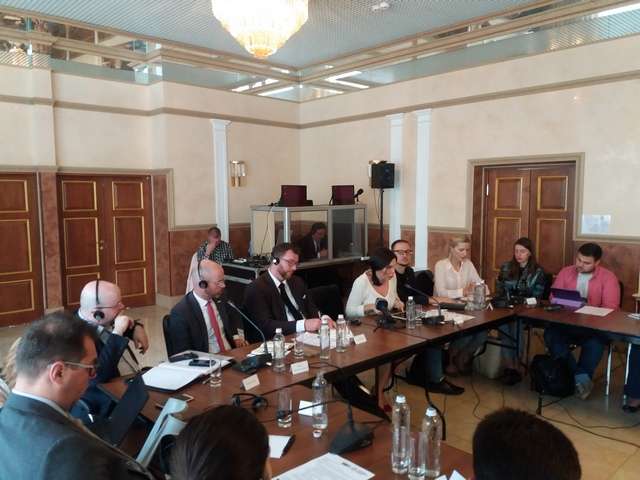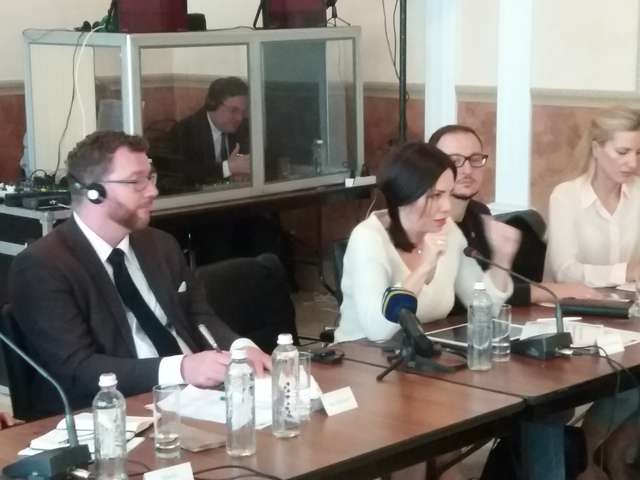Verkhovna Rada hosts anti-Russian propaganda forum
17 September 2018, 18:33
A wide round table discussion on how to detect and counteract Russian misleading information was held at the Ukrainian Verkhovna Rada’s premises
The event was attended by Ukrainian parliamentarians, Scottish delegates of the UK Parliament and representatives of Ukrainian civil society.
A variety of political approaches that could help better identify and counteract Russian disinformation at home and global levels were discussed during the round table. The co-organizers of the forum were the Committee on Freedom of Speech and Information Policy, the Westminster Foundation for Democracy (WFD) and the Ukraine-Great Britain inter-parliamentary friendship group.
The friendship group’s co-chair Oleksii Riabchyn brought up to speed on a joint travel of the Scottish and Ukrainian parliamentarians to the Donbas where they had seen the battlefields, communicating widely and openly with the locals and authorities. The trip helped the guests see the consequences of the Russian aggression and better understand Ukraine’s grim reality. The Scots thereupon became greater advocates of Ukraine at the British Parliament in terms of the Nord Stream 2, visa liberalization, and the like.
In his roundtable speech, Patrick Grady, a Scottish parliamentarian, stressed that the United Kingdom had run into the Russian misinformation activities and propaganda during the Scotland’s independence plebiscite in 2014 as well as the British exit developments. This ill-effect influence is, too, being exerted for the time being - suffice it to mention the infamous Salisbury poisoning. According to him, it is now about increasing the scope of this misinformation and this pressure would seemingly grow during any elections including Ukrainian ones.
It was also stressed that the Ukraine-Scotland solidarity has long-standing traditions, unabated as yet.
Speaking about an information meddling, Europe should not forget about the physical intervention in Ukraine by the Russian Federation.
Viktoriia Siumar, the head of the Committee on Freedom of Speech and Information Policy, stated Ukraine had done much to stem the tide of Russian misinformation, whereas there came up another pressing challenge Ukraine ought to cope with – to be detecting and barring financing of Russia’s harmful media impact.
A senior researcher at the Institute of Statehood, surveyor and reporter, Ben Robinson who from the very off of the Donbas occupation had repeatedly been there, having an opportunity to see the aftermath of the Russian aggression with his own eyes, underscored that Ukraine is now indeed at the forefront of the struggle against that Russian misinformation, and Europe must look into that Ukraine’s experience.
The roundtable sitters underlined that the new strategy to combat misinformation should include a rapid response and decentralization. It was also observed that the work should begin at the school level, teaching children to check information.
The both sides emphasized that no country would win this informational war on its own, unassisted. In their opinion, it is necessary to consolidate the efforts of law-makers and the public.


